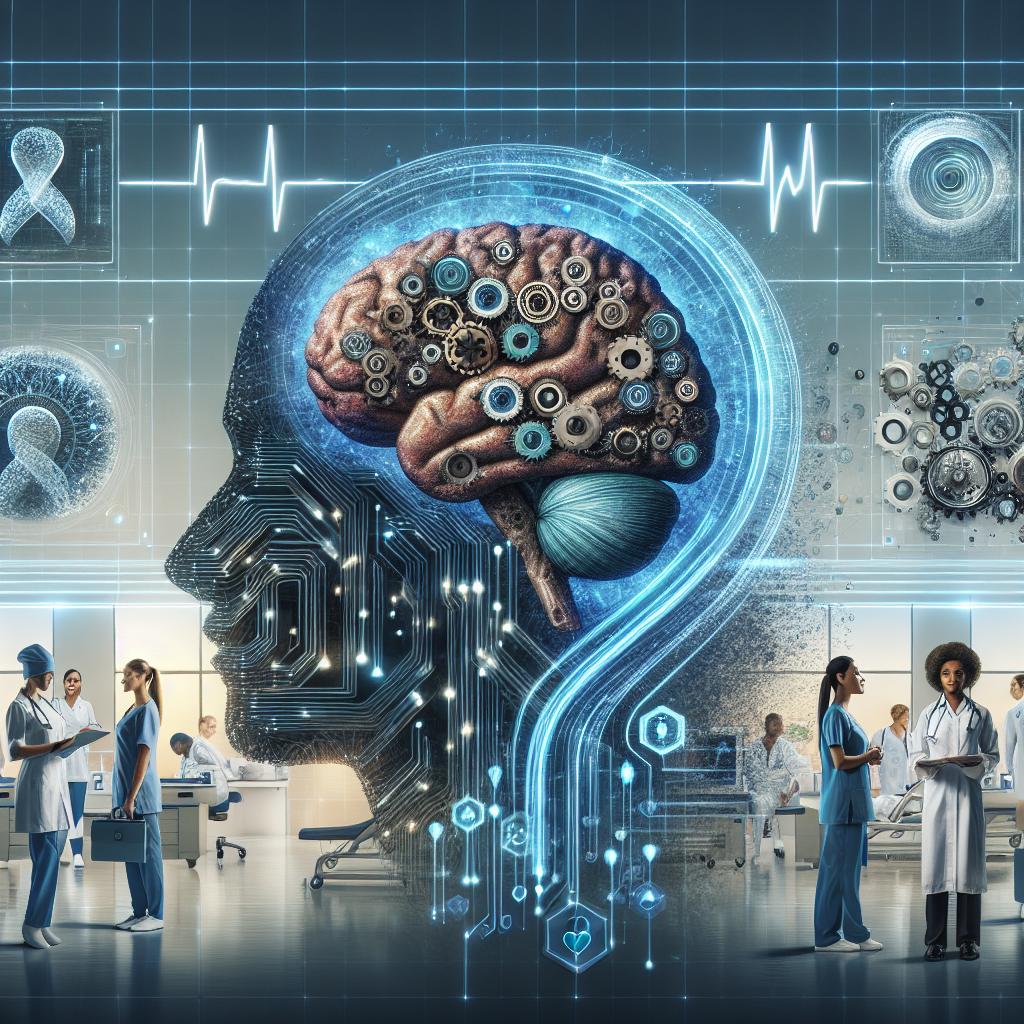Artificial General Intelligence (AGI) has the potential to revolutionize the way we diagnose and treat diseases in healthcare. AGI refers to a type of artificial intelligence that possesses human-like cognitive abilities, allowing it to perform a wide range of tasks that typically require human intelligence, such as reasoning, problem-solving, and learning. In the context of healthcare, AGI can be used to analyze vast amounts of medical data, identify patterns and trends, and make accurate diagnoses and treatment recommendations. This article will explore the role of AGI in healthcare, its potential benefits and challenges, and how it is transforming the way we approach disease diagnosis and treatment.
The Role of AGI in Healthcare
AGI has the potential to significantly improve the efficiency and accuracy of healthcare services by leveraging its cognitive abilities to process and analyze complex medical data. One of the key areas where AGI can make a significant impact is in disease diagnosis. Traditional methods of disease diagnosis often rely on the expertise of healthcare professionals, who may be limited by their knowledge and experience. AGI, on the other hand, can analyze vast amounts of medical data, including patient records, lab results, imaging scans, and genetic information, to identify patterns and trends that may not be apparent to human experts. This can lead to faster and more accurate diagnoses, allowing patients to receive timely and effective treatment.
In addition to disease diagnosis, AGI can also play a crucial role in treatment planning and monitoring. By analyzing patient data and medical literature, AGI can help healthcare providers develop personalized treatment plans that are tailored to each patient’s unique needs and characteristics. AGI can also monitor patients’ progress and adjust treatment plans as needed, ensuring that patients receive the most effective care possible.
Furthermore, AGI can help healthcare providers stay up-to-date on the latest medical research and guidelines. By analyzing and synthesizing vast amounts of medical literature, AGI can identify new treatment options, best practices, and emerging trends in healthcare, allowing providers to deliver more informed and evidence-based care to their patients.
Benefits of AGI in Healthcare
The use of AGI in healthcare offers several potential benefits, including:
1. Improved diagnostic accuracy: AGI can analyze complex medical data and identify patterns and trends that may not be apparent to human experts, leading to more accurate and timely diagnoses.
2. Personalized treatment plans: AGI can analyze patient data and medical literature to develop personalized treatment plans that are tailored to each patient’s unique needs and characteristics, leading to more effective and efficient care.
3. Enhanced research capabilities: AGI can analyze vast amounts of medical literature and identify new treatment options, best practices, and emerging trends in healthcare, allowing providers to stay up-to-date on the latest developments in the field.
4. Increased efficiency: AGI can automate routine tasks, such as data entry and administrative work, freeing up healthcare providers to focus on patient care and improving overall efficiency in healthcare settings.
Challenges of AGI in Healthcare
While the potential benefits of AGI in healthcare are significant, there are also several challenges that must be addressed in order to fully realize its potential. Some of the key challenges include:
1. Data privacy and security: AGI relies on vast amounts of sensitive patient data to make accurate diagnoses and treatment recommendations. Ensuring the privacy and security of this data is crucial to maintaining patient trust and compliance with regulatory requirements.
2. Bias and fairness: AGI algorithms can inadvertently perpetuate biases present in the data they are trained on, leading to unfair and discriminatory outcomes. It is important to address these biases and ensure that AGI is used in a fair and equitable manner.
3. Regulatory concerns: The use of AGI in healthcare raises a number of regulatory concerns, including questions about liability, accountability, and the ethical implications of using AI to make critical healthcare decisions.
4. Implementation challenges: Integrating AGI into existing healthcare systems can be complex and time-consuming, requiring significant investments in infrastructure, training, and support.
FAQs about AGI in Healthcare
Q: How is AGI different from other types of artificial intelligence?
A: AGI refers to a type of artificial intelligence that possesses human-like cognitive abilities, allowing it to perform a wide range of tasks that typically require human intelligence, such as reasoning, problem-solving, and learning. Other types of artificial intelligence, such as narrow AI or machine learning, are more specialized and limited in their capabilities.
Q: How can AGI improve disease diagnosis and treatment in healthcare?
A: AGI can analyze vast amounts of medical data, including patient records, lab results, imaging scans, and genetic information, to identify patterns and trends that may not be apparent to human experts. This can lead to faster and more accurate diagnoses, personalized treatment plans, and more informed decision-making by healthcare providers.
Q: What are some of the potential risks and challenges associated with using AGI in healthcare?
A: Some of the key risks and challenges associated with using AGI in healthcare include data privacy and security concerns, bias and fairness issues, regulatory challenges, and implementation difficulties. It is important to address these challenges in order to fully realize the potential benefits of AGI in healthcare.
In conclusion, AGI has the potential to transform the way we diagnose and treat diseases in healthcare by leveraging its cognitive abilities to analyze complex medical data, develop personalized treatment plans, and stay up-to-date on the latest medical research. While there are challenges that must be addressed, the benefits of using AGI in healthcare are significant and can lead to improved patient outcomes, increased efficiency, and more informed decision-making by healthcare providers. By harnessing the power of AGI, we can revolutionize the way we approach healthcare and improve the quality of care for patients around the world.

